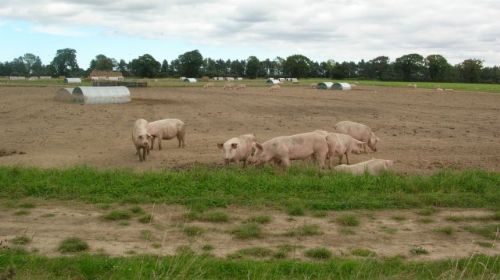
Animal nutrition specialists Optivite have launched a new salmonella control programme for pigs.
The programme looks at meeting an overall need rather than looking at problems in isolation.
"The European Food Safety Authority’s (EFSA) report last year suggested that pigs and pig meat may be responsible for 10 to 20 per cent of all human cases of salmonellosis in the EU. Weaners and growers are the pigs most commonly affected and the ones with the greatest risk of spreading infection to the rest of the herd." said director Sarah Osborne.
"It will also help reduce any financial burden as salmonella can add significant costs to the farmer as a result of higher mortality and slower growth. Even where there may be no clinical symptoms of salmonella it could still be having a subclinical effect on performance and thus profitability."
The programme includes:
1. Good bacterial control in feed and the intestine which helps the sow maintain a more positive intestinal microflora.
Preparing the sow is an important part of the programme. A piglets first contact with the outside environment is through the sow as birth involves the passing of the piglet from a sterile environment within the sow, through the birth canal and into the farrowing house where the Salmonella cell count will be much higher.
2. Enabling a successful continuity through the life cycle. It is important to ensure the protection of the baby pigs once they have lost the passive protection of their mothers’ milk.
Powerful water disinfectants can also be included in the drinking water as part of the programme to remove other potential sources of salmonella infection, especially in older systems where exposed header tanks may become contaminated.
